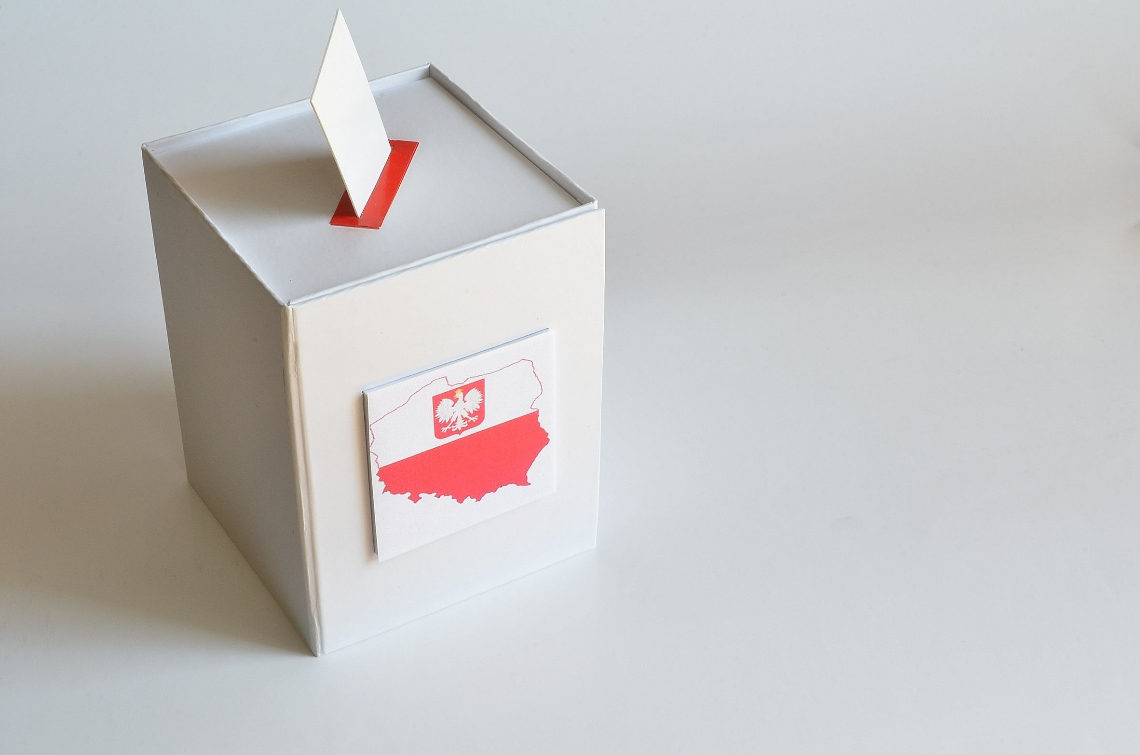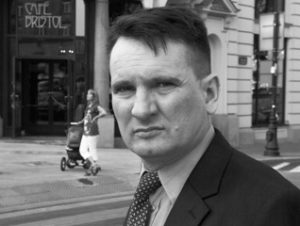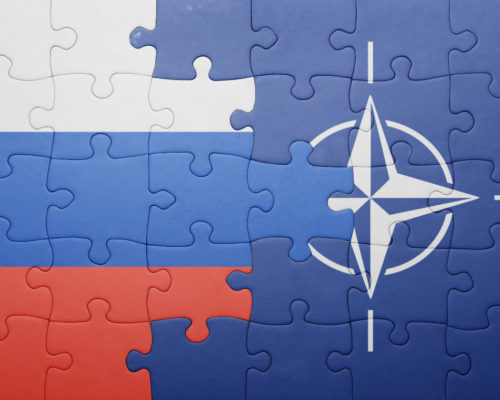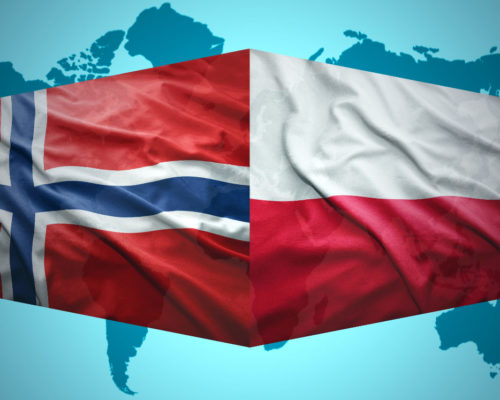
Causes of the catastrophe (+ wersja pl)
Opublikowano: 15 listopada 2015
(Wersja polska – str. 2)
The defeat of president Bronisław Komorowski, and the subsequent defeat of his entire camp, whose establishment was based on the protection of the output of III RP, came as a great surprise for the world. What caused the political environment that claimed to be the creators of Polish success to be defeated quite so ignominously?
The causes are both near and far. They carry notions both shallow and deep.
Antiestablishmentarianism
Delegitimization is a process that has been happening in Poland throughout the entire transformation period. Political scientists and sociologists, through analyzing people’s voting patterns, tend to over-political science them, seeking the roots of the voting decisions in the division into the left and right – the voter’s political and ideological orientation – or their value system, while in truth Poles vote according to two other factors: 1) evaluation of the socio-economical situation or, to be more precise, the level of economic security; and also 2) protest against the elite. Nearly all the elections post-1989 were determined by the delegitimization process, shaped by the algorithm of antiestablishmentarianism.
In 1989, the elections became a referendum over the future of the socialist system, a plebiscite of sorts. However, society did not so much reject socialism as it rejected its elite. Among the candidates provided by the government as part of the national list, only two people entered the Sejm. The other nomenclature presidents had not been defined. No one but the PZPR entered the freshly created house of parliament, which was the Senate.
A mass rejection of the PRL-proposed national list was an emanation of the nation’s antiesablishmentarianist reflex.
Only a year later, during the first free presidential elections, the anti-elite candidates achieved a spectacular victory: such an attitude was openly declared by the dark horse of the elections, Stanisław Tymiński, while Lech Wałęsa was also perceived as an anti-elite candidate, although he was not as overt about it.
The elite’s absolute favorite, Tadeusz Mazowiecki, took a devastating defeat, failing to enter even the second stage of the presidential rivalry, despite functioning as a prime minister.
The algorithm of antiestablishmentarianism was consumed over twenty-five years in different ways. At the beginning of the 1990s, the post-communist SLD party enjoyed great popularity. It was a formation that at that time (it has since changed its policy) was opposed to the reform plans proposed by prof. Leszek Balcerowicz, and also expressed its reluctance for Poland to enter NATO.
SLD was victorious in the 1993 parliamentary elections, and two years later, a candidate of the party – Aleksander Kwaśniewski, was triumphant in the presidentials, only to subsequently lose to the right united under the Solidarity Electorial Action in the parliamentary elections of 1997.
At the turn of the millennium, the leftist party once again became the most popular, gaining first place in polls, then emerging victorious in the parliamentary elections in 2001. At the same time, other anti-elite groups also came to be, such as Andrzej Lepper’s “Samoobrona” and the League of Polish Families.

New polarization and generational changes
In the aftermath of the Rywin affair, the political power of the left has decidedly decreased in Poland. The second bout of the 2005 presidential elections was the first time in ten years when there was no SLD representative. Włodziwiesz Cimoszewicz backed out, while the position of head of state was sought after by two representatives of the post-Solidarność side: Lech Kaczyński and Donald Tusk. And thus, the left has stopped being a side in the Polish conflict for power. In place of the previous historical division that prevailed until 1989, new divisions were slowly being formed: 1) first there was the socio-economical division, building Poland’s opposition to the liberal, or, using different designates, the opposition of the people against the elite (such was the hidden motive of this division); later, a cultural one, based on the contrast between modernization and the backwater, the metropolitan and provincial.
The old (historical, post-communist) division oriented the Polish political scene to the past, while the new (post-Solidarity) division oriented to the present and future
In essence, the 2007 elections were also driven by a protest against the ruling elite. In the entire 26-year-long period of transformation, there was only one time when Poles decided that power should stay with the governing group. This happened in 2011, when the election was won by the governing Civic Platform. However, it is important to keep in mind that the verdict happened in the context of three very important factors: 1) the cultural depreciation of the strongest oppositional structure (Law and Justice), which enabled them to be in power independent of the quality of the government; 2) in the perspective of an important national challenge – the organization of the 2012 Euro football championship; 3) and during the Polish presidency in the European Union.
It is a well known fact that in such situations society tends to consolidate around the factors of the currently ruling party.
Generational changes have overlapped with the process of replacing historical polarization with a socio-economic one, followed by a cultural (civilization-based) one. 2007 saw the first vote where the generation born after 1989 participated. These are people who had nothing to do with PRL and who were greeted with liberty, instead of having to earn it. With the passing of each year, a new generation entered the voting market, which further strengthened the trend of anti-elite behaviors and reflexes.
Foundations of a revolution
Why did a Political camp enrolling defenders and representatives of the transformation of Poland taste defeat, despite trying to spectacularly legitimize their right to exist on the political stage with 26 years worth of successful socio-economic changes? The answer to this question lies in a diagnosis put out by Alexis de Tocqueville in his work “The former system and the revolution”: revolutions happen not at the time of greatest poverty, but when the situation is starting to get better. It is common for the initiated reforms to inspire a quickened growth in social aspirations than it is possible to fulfill.
During transformation, there was an accumulation of several crucial causes for a defeat of the camp affirming the output of the III RP.
Devaluation of higher education. After 1989 many higher education facilities went down to the poviat level, opening new directions of education, as well as branches of their own. This was dictated by metric calculations, prepared to take advantage of the baby boom waves. However, as the well-known professor Bogusław Wolniewicz once said, quoting a known law of physics: “mass is always pulled downwards.” Increasing the availability of higher education has lead to a radical decrease of its quality. Formally and statistically speaking, the percentage of people with higher education is dynamically increasing, but the level of the attained knowledge is being lowered. Additionally, the profile of the education gained does not fit job market expectations. The Polish education system manufactures unemployment. But the social aspirations due to the formal rise in qualifications, are growing.
Changing the comparative perspective. The reference groups for evaluating our situation have changed. Globalization, along with the development of communication infrastructure, the creation of so-called new media, have radically changed the way reality is experienced. We aren’t even making a comparison in a vertical perspective with our parents and grandparents, but in a horizontal one – with our peers around the world. The argument that we are leading better lives than our predecessors is not enough, because we are worse off than our peers in Germany, France, Great Britain, or the US.
The change in comparative perspective has also influenced the growth of aspiration: we want to live like developed societies.
Unfulfilled aspirations, especially in the context of a subjective idea of high competences and high self-esteem, give rise to adequate frustrations. The higher the expectations, the greater the disappointment.
Precarization. Poland’s economic success is based on (aside from being part of the EYE) only one notion: low work costs, bordering on exploitation. There is no redistributional value. It creates a transformation beneficiary group that is too small. People who are unsatisfied are much more plentiful than those satisfied. After 1989 the competition to the Polish job market quickly frew, but that stemmed from the asymmetry of the cost of labor proportional to the effectiveness.
Ronald Inglehart, American sociologist, created a theory based on comparative studies conducted in six developed nations in Western Europe (Germany, the Netherlands, Belgium, France, UK and Italy) called the “silent revolution” which was meant to define the generational change in the area of values changing along with the increasing economic wealth of developed industrial societies.
We always desire that value which we most severely lack. Generations raised in poverty strive for material possessions, they crave material things. Generations raised in wealth are geared to post-material values.
They first orient themselves to economic security, only later on civic rights and tolerance. These preferences do not change with age.
Social protests that took place in Poland in the 1980s are often portrayed as fueled by a desire for freedom, and yet the truth is not that obvious, as they were also grounded in a difficult socio-economic situation, and a desire to meet social expectations. “Solidarity’s” revolution was rebuilt into social postulates. Non-material values (political, ideological, cultural) were of lesser importance to society.
After 26 years of transformation, the situation has changed. Despite generational changes, Poles still experience a deficit in materialistic values and orient to economical security. They want the bread, not the games.
This means that the Polish society has not yet achieved the opulence that would make civic values a priority. Equality is still more desirable than freedom.
As prof. Andrzej Rychard, sociologist of the Polish Academy of Sciences, said when commenting the 2015 presidential elections: these elections connected two frustrated groups: the old frustrated who believe that the transformation is going too fast, and the new frustrated who believe, that it is going too slow.
The author is a columnist, writer, author of popular science books on the topics of sociology and political science. He described cases related with criminal activities by the mafia on local television. He also published works in nation-wide media. Former deputy editor-in-chief of the Gazeta Finansowa and head of its national section. His materials have been published on Onet.pl, Interia.pl, Inwestycje.pl and the magazines: Forbes.pl, Home&Market, and Gentleman.
He is currently dealing with analyses in the fields of philosophy, sociology of knowledge, politics, political science, and geopolitics. He is editor-in-chief for expert periodicals published by the FIBRE Foundation.
Tagi: politics






Dodaj komentarz